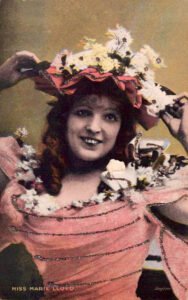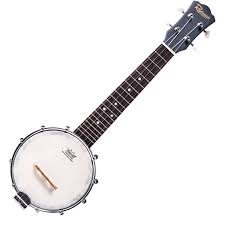
We gave a very warm welcome to the multi-talented Mark Walsh who returned for a second visit. His subject this time was,” Here’s a funny thing,” which covered the rise of Music Hall and its artistes.
Sometime back in the 1830’s, a very discerning landlord in London decided to devote a room at the back of his spit and sawdust pub in order to employ a variety of acts to entertain his customers. The landlord would take on the role of ‘chairman’ and the artistes would dance, sing songs and/or tell jokes. If they proved to be very good, they would attract the drinkers (known as the house) away from the bar and down to the stage; this went on to coin the phrase we know today as ‘bringing the house down.’
The idea of variety acts soon caught on and it wasn’t long before over 400 London pubs also had a ‘Music Hall’ where an Act would ‘play’ for about ten minutes; they might then move on to another pub to perform again and were often able to fit in nine shows in different venues in one evening as they didn’t have to travel far. The Music Hall became synonymous with providing affordable entertainment for the new urban working class. Here the public were treated to a wide range of performances, from gymnastic acrobatics to singing and dancing routines. As the Music Halls rose in popularity, so did some of the artistes and the likes of Marie Lloyd and later Arthur Askey were soon recognised by their ‘signature’ tunes of ‘My Old Man’ and ‘The Bee Song’.
By the turn of the 20th century, the music halls had grown into variety theatres with a compere rather than a chairman, and there were an increasing number of excellent comedians appearing such as Arthur Askey and Max Miller, who later became the highest paid stand-up comic at that time. Max Miller was renowned for working his audience with his rhymes and often leaving the last line for them to complete; he also influenced some of the best-known comedians of the 1950s and 1960s including Frankie Howard, Bob Monkhouse, Roy Hudd and Ken Dodd. Sadly, the increasing popularity of the cinema and then TV resulted in the demise of variety theatres, and many were demolished in the 60s nevertheless, variety continued in a different way with the rise in popularity of ‘the summer season’, followed by ‘the pantomime season’ where the audiences were still able to interact with the performers.
 Mark is regarded as one of the finest ukulele players in the world and interspersed his most interesting talk by playing several well-known tunes on either his ukulele or banjolele. Both of these instruments were given to him by the famous Billy ‘Uke’ Scott and remain Mark’s favourite instruments; they are also eventually destined for the Victoria and Albert Museum.
Mark is regarded as one of the finest ukulele players in the world and interspersed his most interesting talk by playing several well-known tunes on either his ukulele or banjolele. Both of these instruments were given to him by the famous Billy ‘Uke’ Scott and remain Mark’s favourite instruments; they are also eventually destined for the Victoria and Albert Museum.

Leave a Reply
You must be logged in to post a comment.